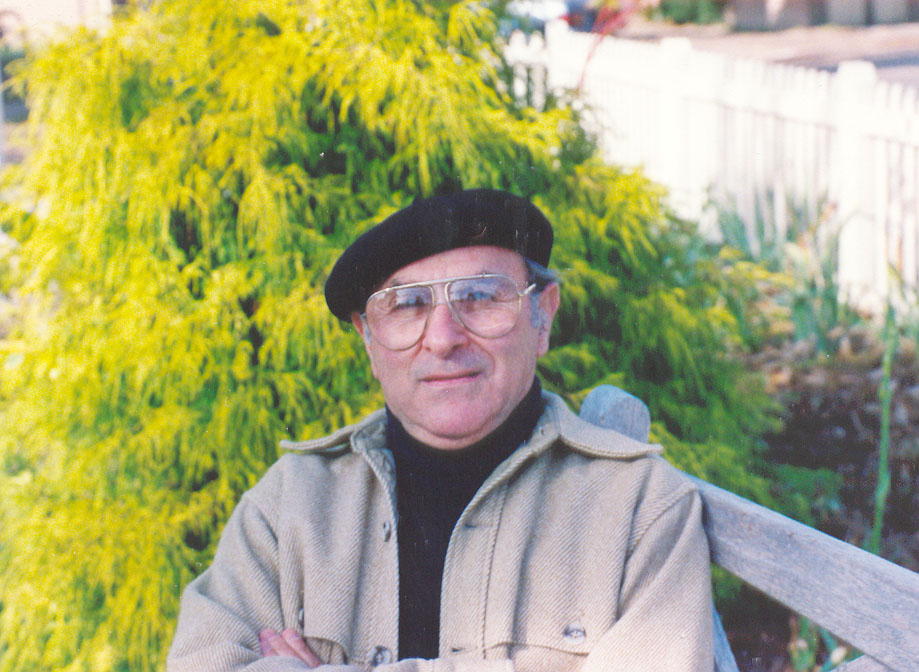
Frank Shatz
Frank Shatz is a Williamsburg resident. He is the author of “Reports from a Distant Place,” the compilation of his selected columns. The book is available at the Bruton Parish Shop and Amazon.com.
Dr. Edward Lozansky is the founder and president of the American University in Moscow and the Russia House Association in Washington, D.C. He is also a professor at Moscow State and National Research Nuclear Universities.
But before all this, Lozansky, a nuclear physicist, was a dissident in the Soviet Union. He become an admirer of the great nuclear scientist Andrei Sakharov, the father of the Soviet hydrogen bomb, who in spite of all the privileges bestowed on him, demanded more freedom for his compatriots.
Lozansky, who was married to the daughter of a high-ranking Soviet general, was exiled and endured a six-year separation from his wife, Tatiana, and daughter, Tania, enforced by Soviet authorities.
I met Lozansky in 1980 during the Winter Olympics held in Lake Placid. He was a professor of nuclear physics at the University of Rochester in New York. His aim was to use the Olympics to bring worldwide attention to the cause of the reunion with his family, and pressure the Soviet government to relent.
In an effort to help him, a letter was sent to Soviet President Leonid Brezhnev. It was signed by Lake Placid Mayor Robert Peacock, Eric Heiden, who won five gold medals is speed skating, and me, as the founder of the Olympic People-for-People Program that hosted Soviet athletes.
Alas, it took Lozansky two more years to reunite with his family, and only after Mikhail Gorbachev introduced perestroika. He nevertheless felt gratitude toward the Olympic People-for-People Program, and soon after his wife and daughter arrived in the U.S., he brought them to Lake Placid.
Since then, Lozansky has become an American citizen and earned a high position in the academic world, serving as a bridge between American and Russian institutions of higher education.
Lately, however, Lozansky has come under sharp criticism for his support of Russian President Vladimir Putin. I asked him, what is the reason he supports him?
Lozansky, in a previous interview with the Gazette, explained that Russians now have practically all the basic freedoms that people enjoy in the West and despite certain deficiencies in democracy, Russia should be cultivated as an important ally to face global challenges.
He is also very much aware of past mistakes that soured U.S.-Russian relations.
According to Lozansky, when President Yeltsin succeeded Gorbachev, there was a unique opportunity to develop a plan for Russia’s integration with the West, but it didn’t happen. Instead, during the Clinton administration, hundreds of American advisers rushed to Moscow to "help” the Yeltsin team perform the miracle of transforming Russia’s inherited planned economy to a market economy. Their advice was so devastating that it lead Russia to economic collapse and financial default.
He also recalled that after the 9/11 terrorist attack, Putin provided President George W. Bush with every assistance he was asked for. "Putin was repaid by Bush with the unilateral abrogation of the ABM treaty, by promoting the so-called color revolution in post-Soviet space and pushing for further NATO expansion,” Lozansky said.
"Follow Thomas Jefferson’s advice and try not to meddle in Russia’s internal affairs,” he said. "Identify a priority list of common problems which can be resolved by common efforts.”
Recalling President George H. W. Bush’s road map for Russia’s integration with the West, when he talked about a "Europe whole and free with a security arch from Vancouver to Vladivostok,” Lozansky reflected on the upcoming summit between President Trump and President Putin.
"If President Ronald Reagan could make a deal with Mr. Gorbachev, why not let Mr. Trump try to do the same with Mr. Putin?”
There is a statue of Ronald Reagan shaking hands with Mikhail Gorbachev in downtown Moscow and a statue of Andrei Sakharov in front of Russia House in Washington. Both statues were commissioned by the Lozanskys.
"We had the privilege of meeting these great men, and they give us the hope and inspiration to continue our fight for U.S.-Russia rapprochement,” Lozansky said.



_jpg/250px-ElbeDay1945_(NARA_ww2-121).jpg)





